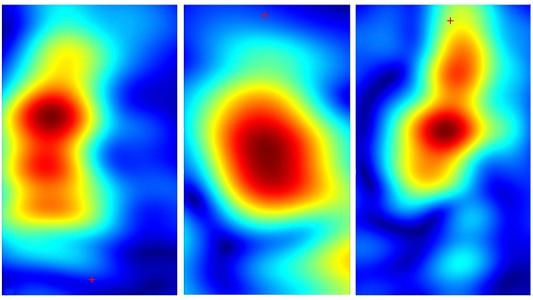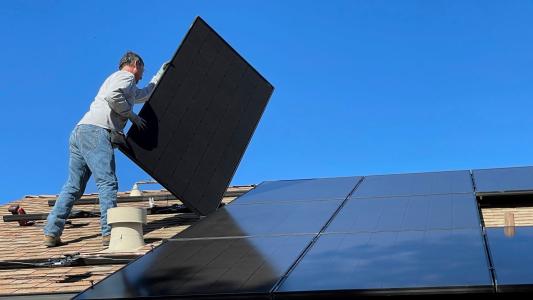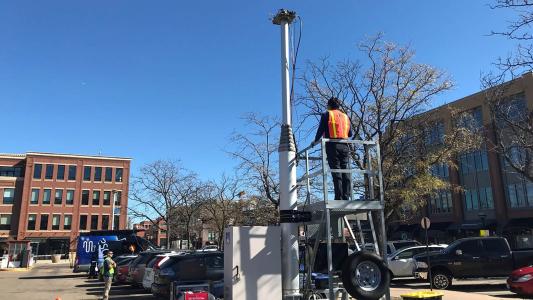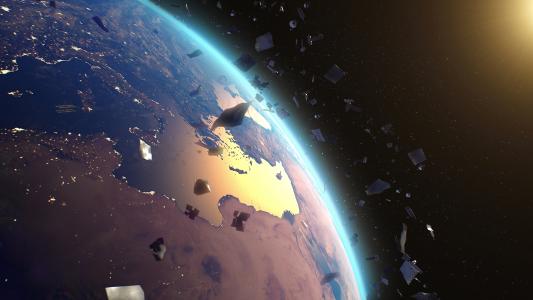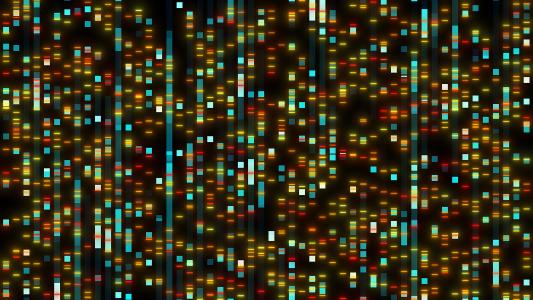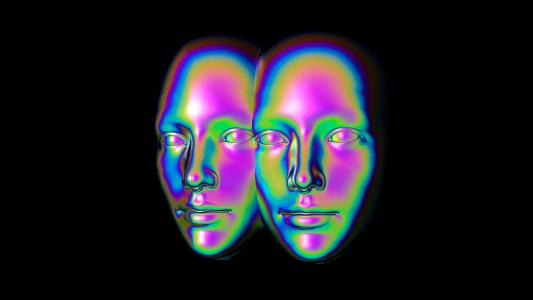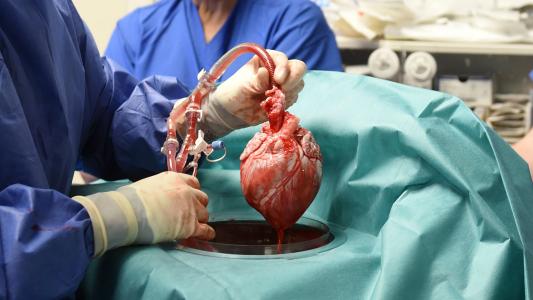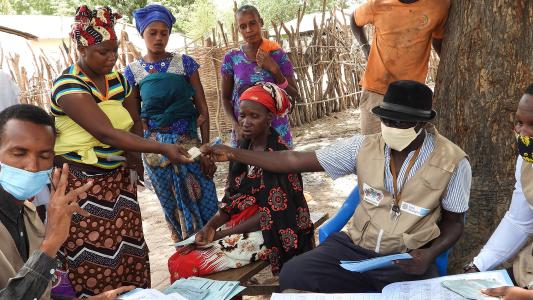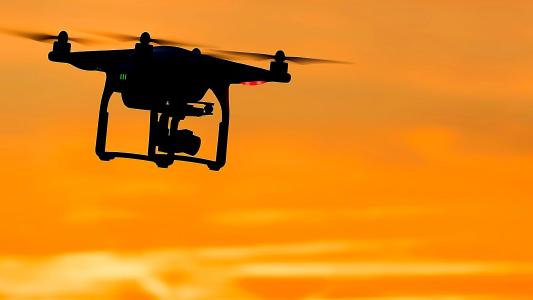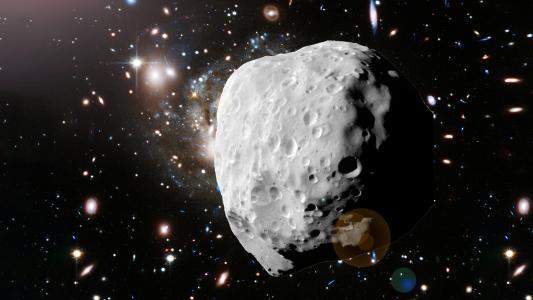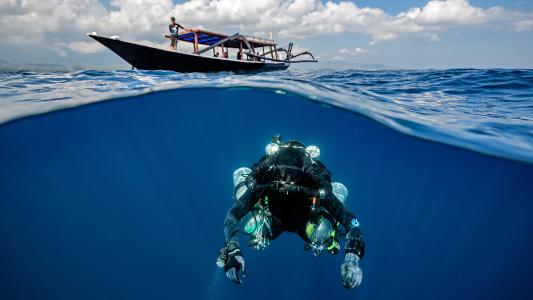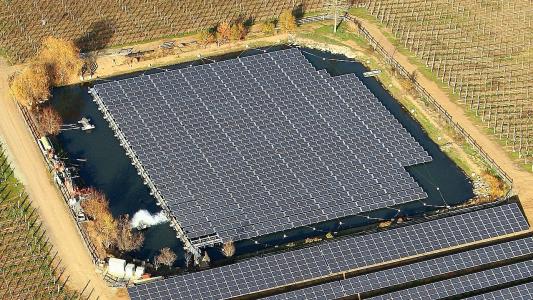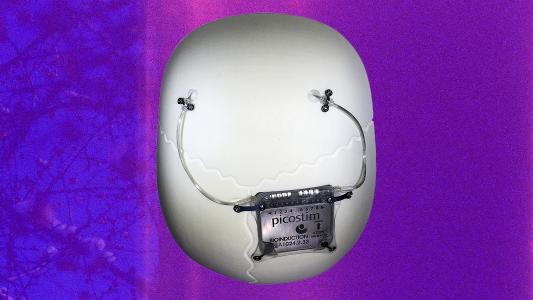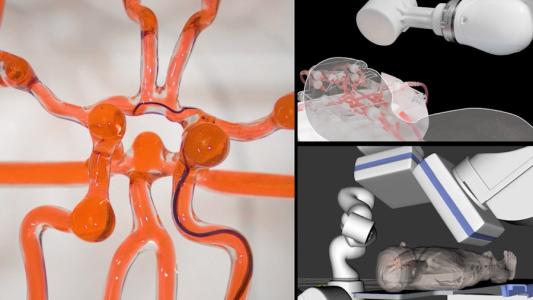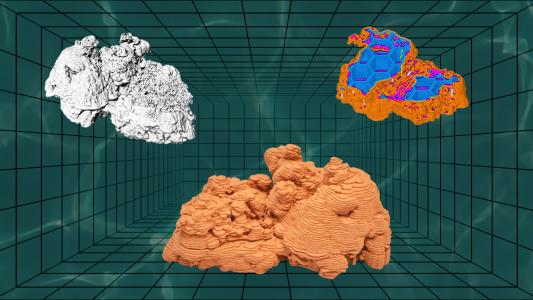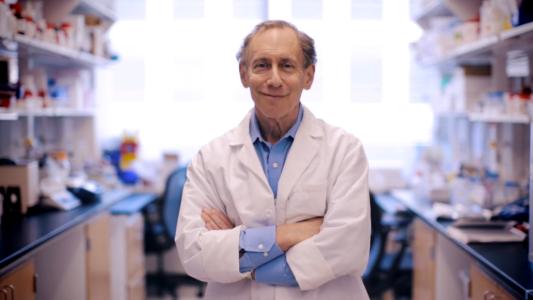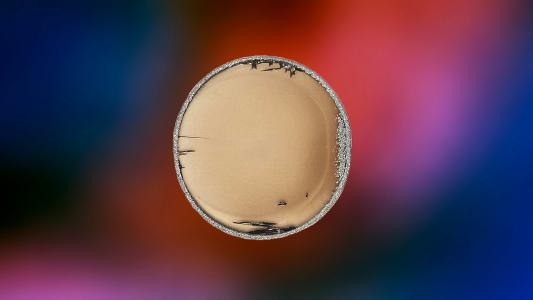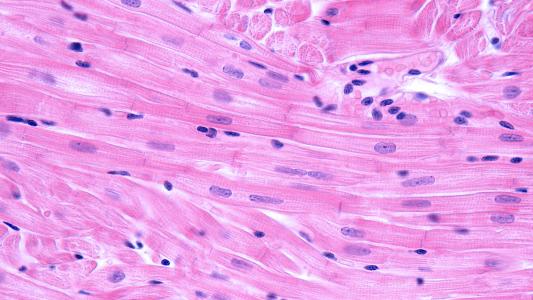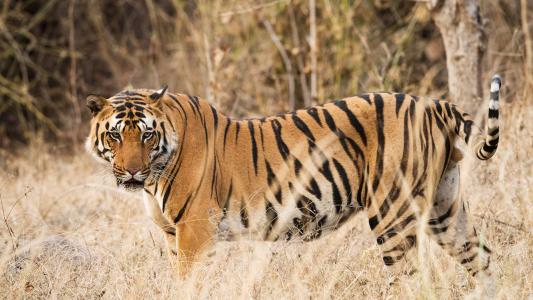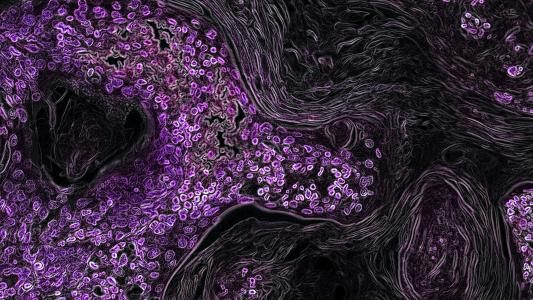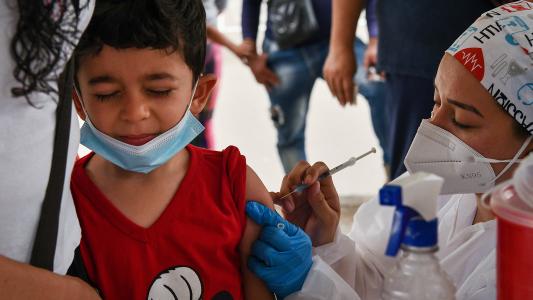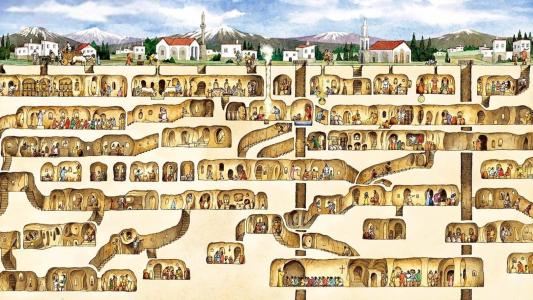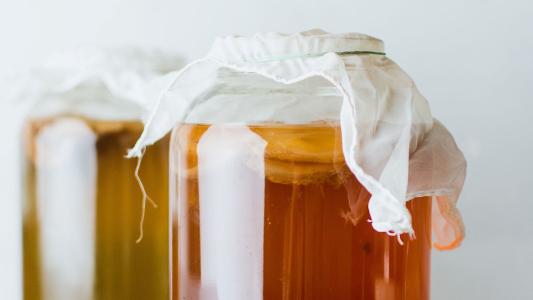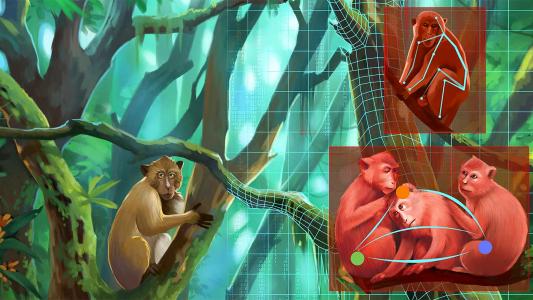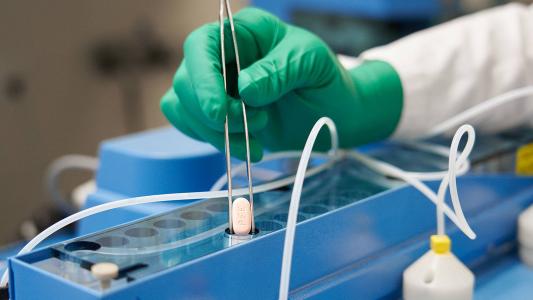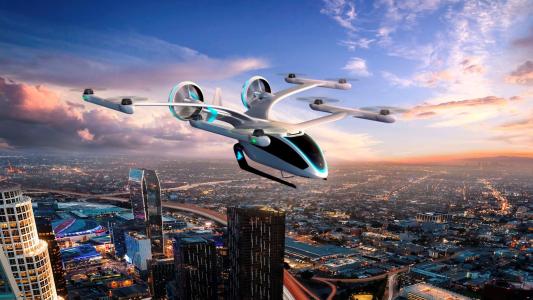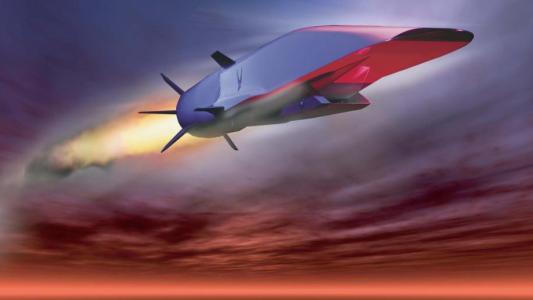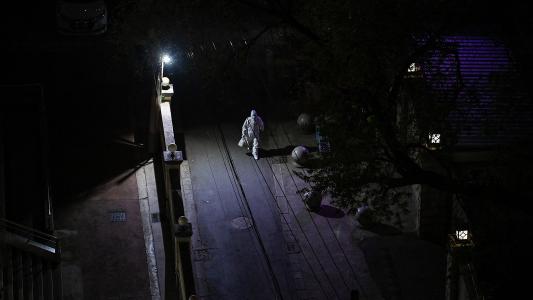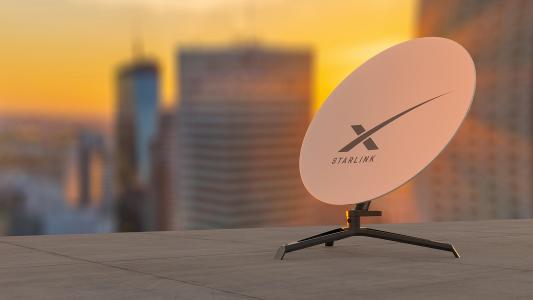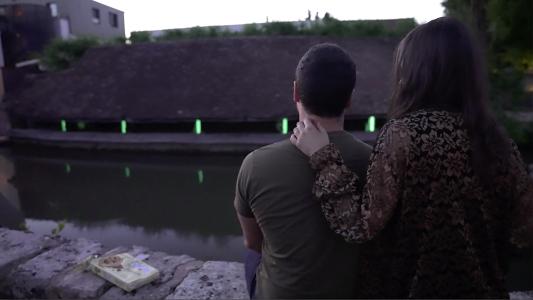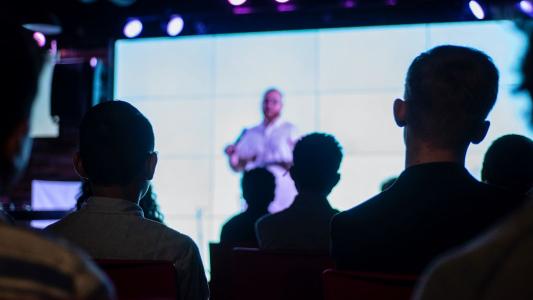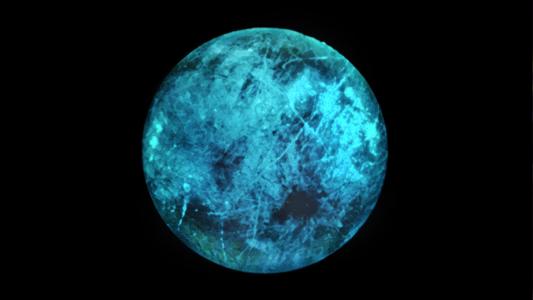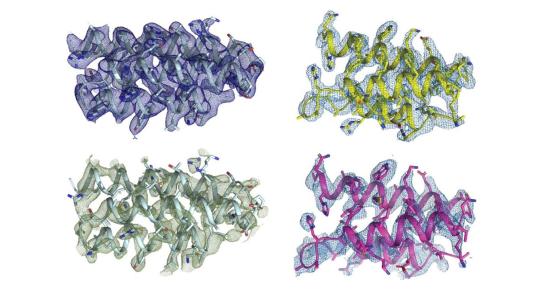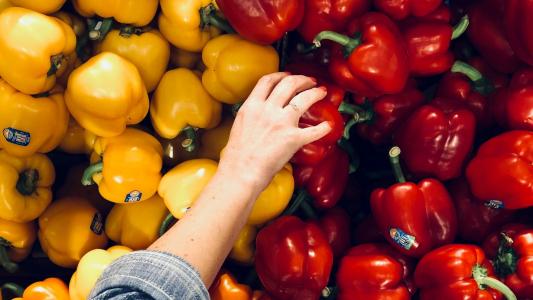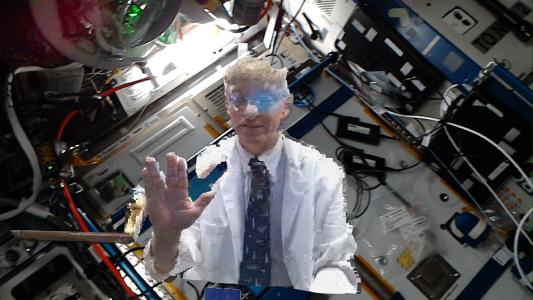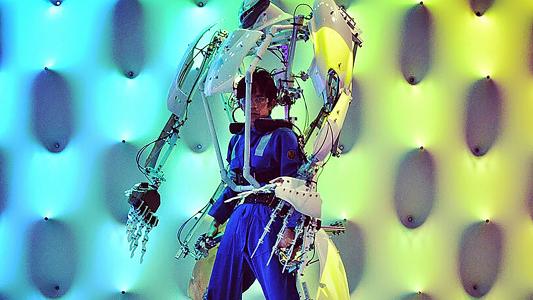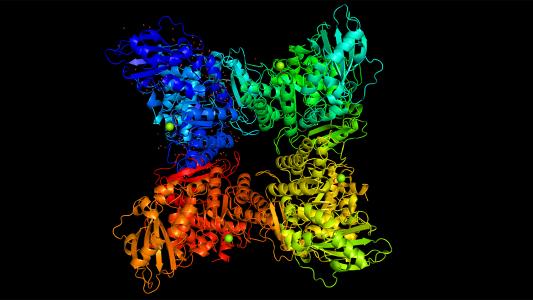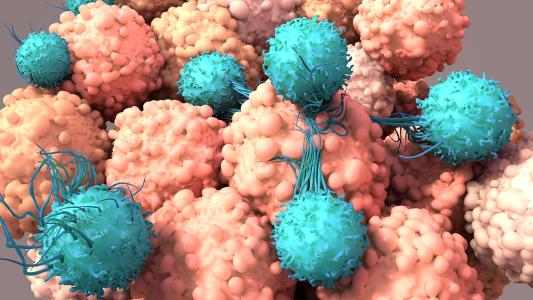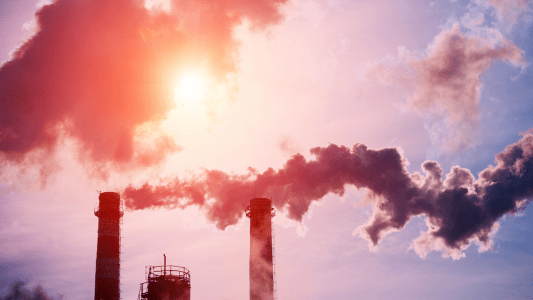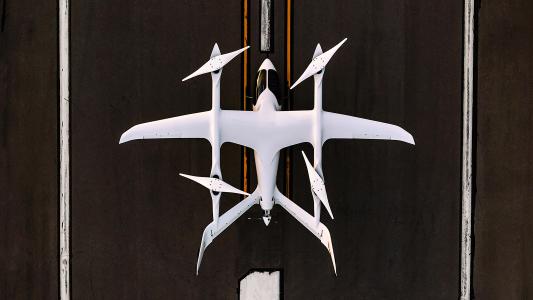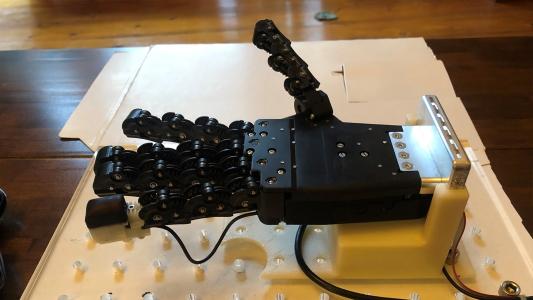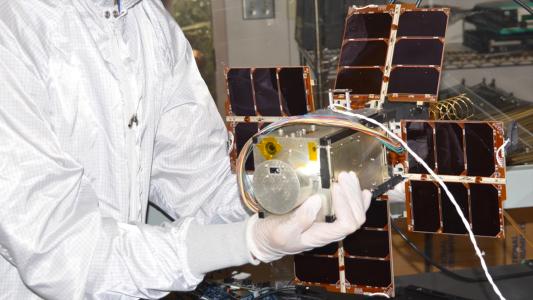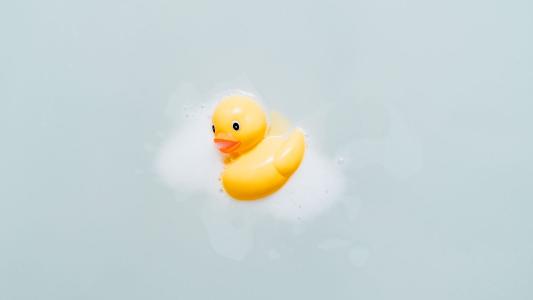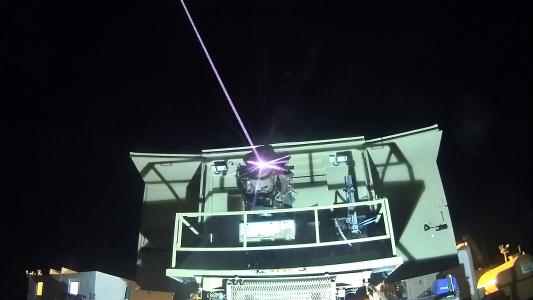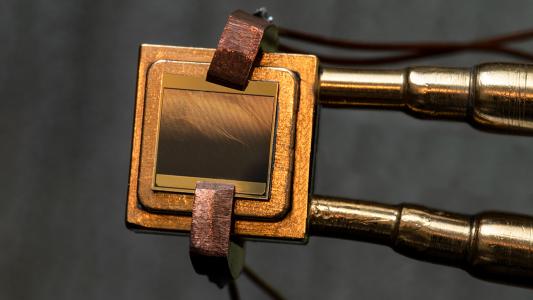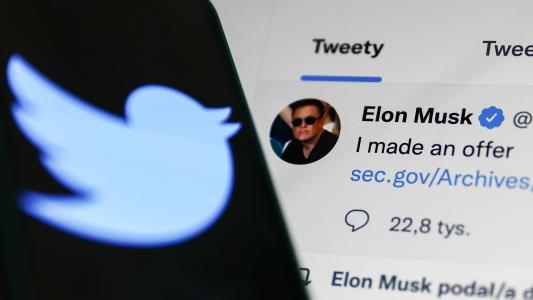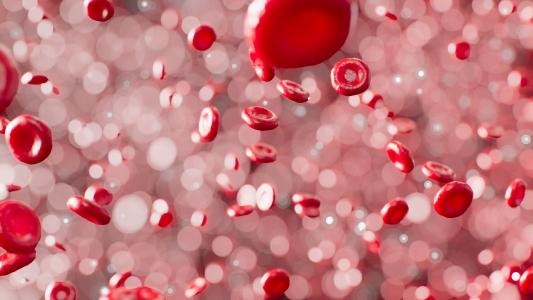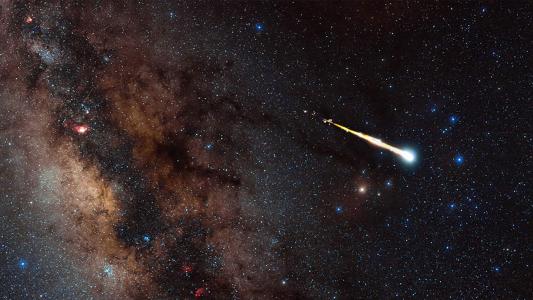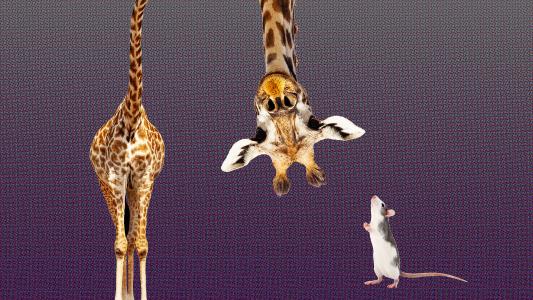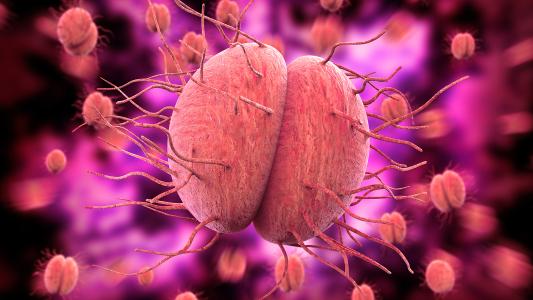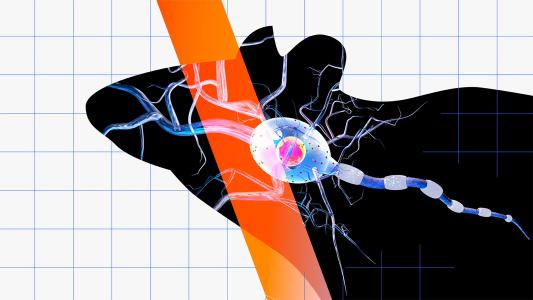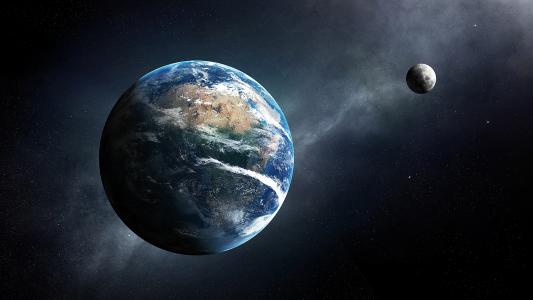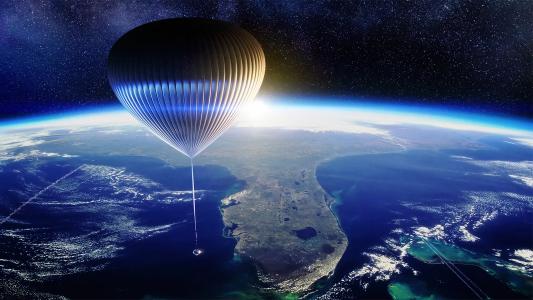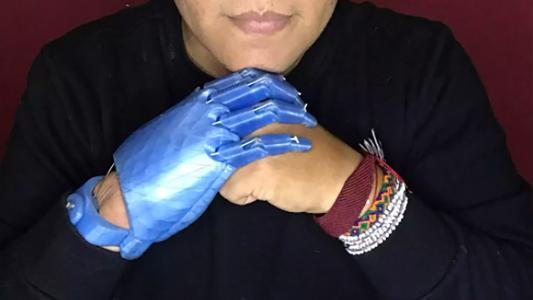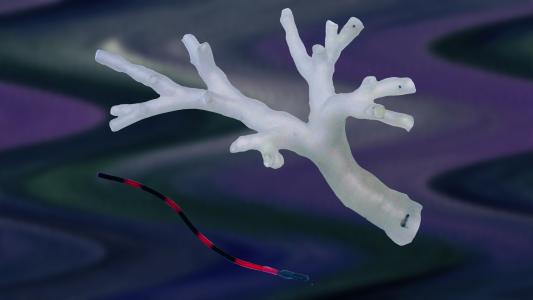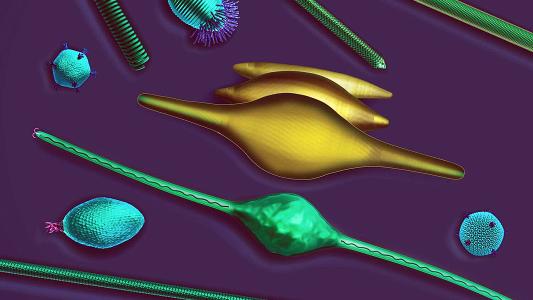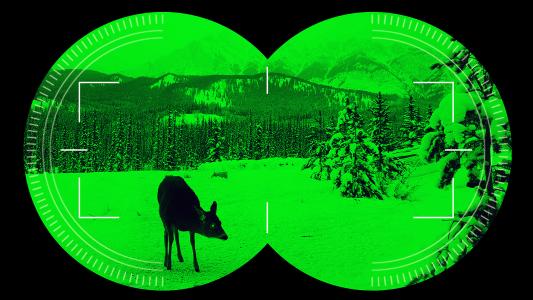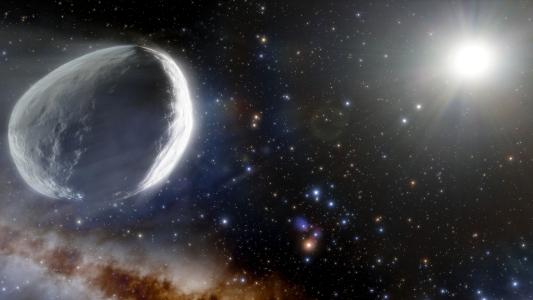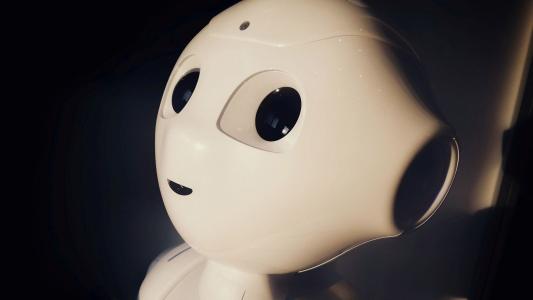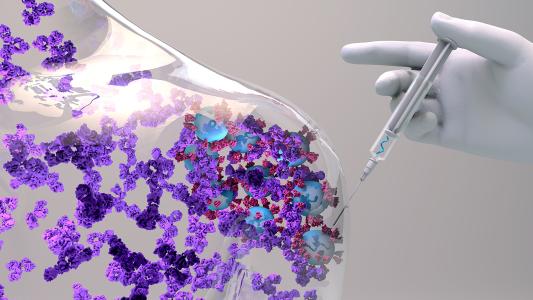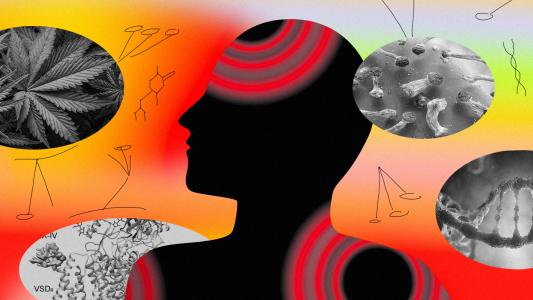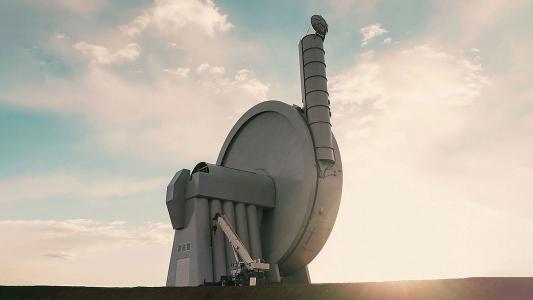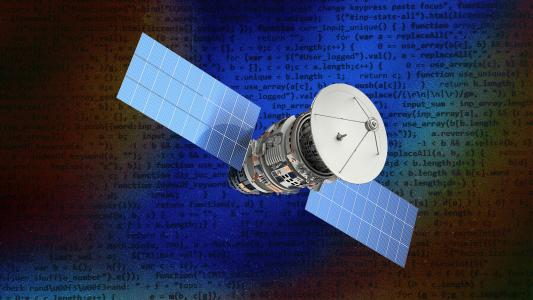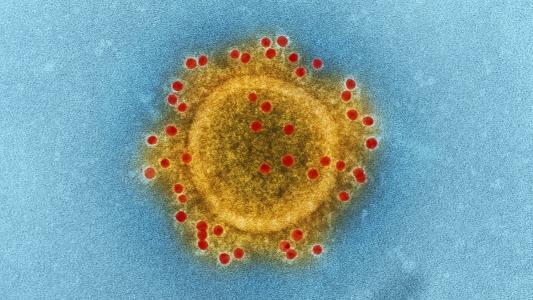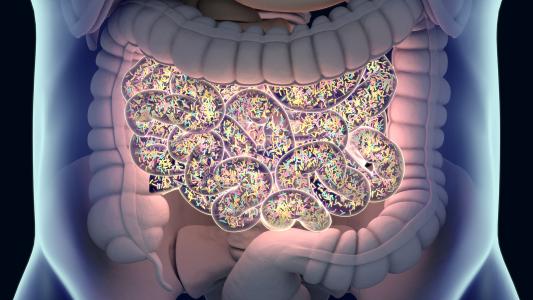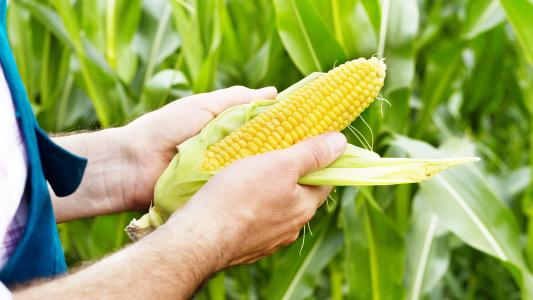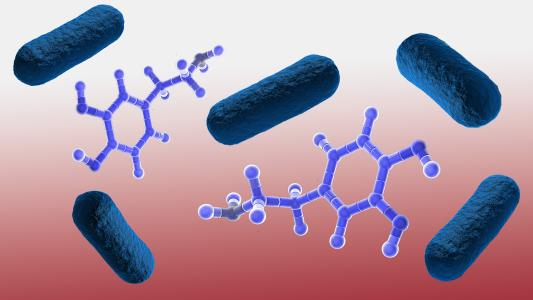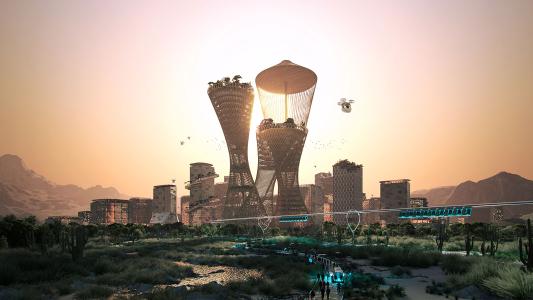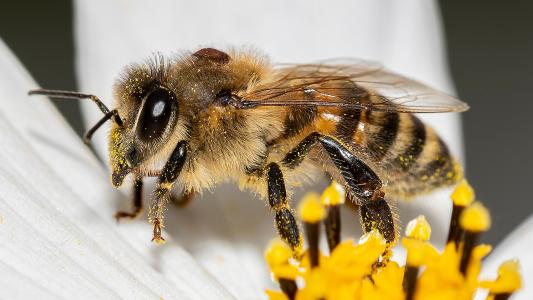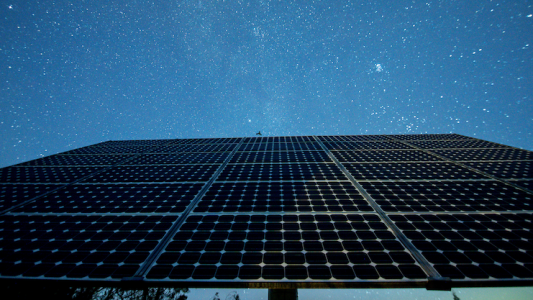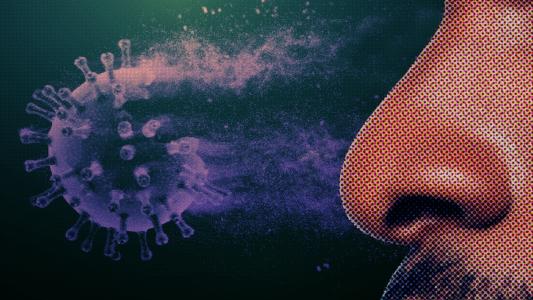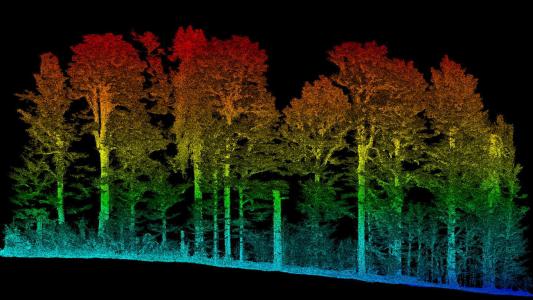5G millimeter wave tech may prevent unnecessary skin biopsies
Stevens Tech researchers have developed a device which uses the same tech as the TSA does to find skin cancer tissue without a biopsy.
See the world’s first floating city: OCEANIX Busan
If the world's first floating city is a success, other coastal metropolises could use it as a blueprint for adapting to rising sea levels.
3 emerging technologies that will give renewable energy storage a boost
The U.S. Department of Energy has predicted that renewable energy will be the fastest-growing U.S. energy source through 2050.
Should we build high-speed public WiFi into street lights?
Better public WiFi networks could be created by broadcasting signals over the 60 GHz frequency band from transmitters attached to light poles.
Space Force backs 125 teams to take down orbital debris
The US Space Force is giving 125 teams up to $250,000 each to develop tech to deal with the orbital debris circling our planet.
A Spanish teen’s genome may hold the secret to lupus
Researchers believe they have found a single point mutation in an infection-sensing gene that causes the autoimmune disorder.
Graphene typically costs $200,000 per ton. Now, scientists can make it from trash.
Graphene is a lattice of carbon atoms arranged in a chicken-wire formation, a structure that makes it very useful for a range of uses.
This company wants you to live forever in their metaverse
Metaverse company Somnium Space wants to create digital versions of you to live on after you pass, the newest example of digitized death-defying.
Docs discover likely cause of pig heart transplant failure
A pig virus — and not organ rejection — appears to be the reason a man who lived for two months after a pig heart transplant ultimately died.
A nun built a hydroelectric plant that’s providing free power to a town in Africa
Blackouts are a daily disruption in the country, which sources most of its electricity from a run-down and mismanaged hydropower system.
Google Career Certificate programs are now free for US businesses
Google has announced a new Career Certificate program and a plan to give any US business $100,000 in free tech training.
Surprise in death data: Malaria has a U-shaped death curve
Better death records can reveal surprises about common killers like malaria — and help save lives.
Drones and driverless cars could help with Ukraine’s humanitarian crisis
We need a universal code of conduct for deploying autonomous vehicles and drones in humanitarian settings.
China is going to try to move an asteroid
As part of its new planetary defense strategy, the China National Space Administration is going to launch a mission to redirect an asteroid.
Rebreather dives are wildly risky. But this might save lives.
Duke researchers have developed an early warning system for rebreather divers at risk of hypoxia.
This German firm is building a floating solar plant on a quarry lake
A German company will switch on a floating solar power plant, a rapidly-installed, renewable technology that could help phase out oil.
World’s smallest DBS device reverses Parkinson’s symptoms
An ultra-small deep brain stimulation (DBS) device could increase the number of Parkinson’s patients to receive the powerful treatment.
The US has untapped green energy, hidden in abandoned oil wells
By converting some of its abandoned oil and gas wells into geothermal power stations, the US could secure its clean energy future.
Joystick-operated robot could help surgeons treat stroke remotely
With a modified joystick, surgeons in one hospital may control a robotic arm at another location to safely operate on a patient.
Watch: Incredible jumping robot triples world record
A new jumping robot that can soar nearly 100 feet into the air might use the ability to explore the moon for NASA.
3D-printed artificial coral reefs could save coastal fish
A new method for designing and 3D printing custom artificial coral reefs could make them more accurate stand-ins for the natural kind.
How Robert Langer, a pioneer in delivering mRNA into the body, failed repeatedly but kept going
Langer published the first paper to show that it was possible to deliver nucleic acids like RNA and DNA to the body via tiny particles.
North Korean citizens are jailbreaking smartphones to bypass censorship
In the face of severe punishments, North Korean hackers are finding clever ways to access forbidden content.
A new kind of diamond will hold a billion Blu-Ray’s worth of data
Ultra-pure diamond wafers could be used for quantum memory in tomorrow’s ultra-powerful quantum computers.
RNA breakthrough offers a potential heart attack cure
King’s College London researchers have used RNA to regenerate cardiac tissue in pig hearts, what they hope is the first step towards a heart attack cure.
WWF report highlights tiger population gains for the Year of the Tiger
The global tiger population is finally increasing after more than a century of gradual decline, a new study from WWF reveals.
Researchers want to fight cancer — by mutating it even more
Sloan Kettering researchers have proposed a controversial way to improve immunotherapy: making cancer cells mutate on purpose.
Moderna applies for approval of COVID-19 vaccine for children
Moderna has asked the FDA to authorize its COVID-19 vaccine for children ages 6 months through 5 years.
Derinkuyu: Mysterious underground city in Turkey found in man’s basement
A basement renovation project led to the archaeological discovery of a lifetime: the Derinkuyu Underground City, which housed 20,000 people.
The Large Hadron Collider is back online
The world's biggest particle accelerator, the Large Hadron Collider (LHC), is back online after a three-year hiatus.
Chevrolet is electrifying the Corvette
GM has announced plans to bring the Corvette roaring into the electric vehicle market.
Inspired by kombucha tea, engineers create living materials
A symbiotic culture of specialized yeast and bacteria can generate tough materials able to perform a variety of functions.
This hydrogen aircraft could really work
California startup HyPoint plans to make a hydrogen-powered aircraft with nearly three times the range of a turboprop commuter jet.
AI can now understand animal behavior
Animal behavior researchers can now turn the task of analyzing footage over to an open-source algorithm that can spot even subtle actions.
America’s “Test to Treat” has failed. Here’s how to fix it.
So far, Test to Treat has largely failed to get antivirals for COVID-19 to patients that need them — but the initiative can still be fixed.
The next big disruption is coming: How cities can prepare for flying cars
Urban Aerial Mobility - or 'flying cars' - could present a more flexible way for cities to invest in future infrastructure.
Introducing the Beautiful Minds competition on innovating higher education
In partnership with Lumina
Meet the three organizations with a chance to win $50,000.
Watch a helicopter attempt to catch a falling rocket (Updated)
Aerospace startup Rocket Lab is going to attempt to catch a falling rocket using a long hook dangling from a helicopter.
How hypersonic missiles work and the unique threats they pose
Hypersonic systems have been in use for decades, but the latest ones are highly sophisticated new technology.
WeChat users try to keep Shanghai lockdown protest video ahead of censors
WeChat users have turned to all manner of tricks in a cat-and-mouse game with CCP censors to keep a video about the Shanghai lockdown online.
Elon Musk’s Starlink fights off Russian attacks in Ukraine
A Pentagon official was impressed by how quickly the Starlink internet network responded to electromagnetic warfare in Ukraine.
Bioluminescent bacteria will soon light up this French street
French commune Rambouillet is serving as a testing ground for the soft glow of bioluminescent bacteria on the street.
Babble hypothesis shows key factor to becoming a leader
Researchers show that intelligence is not the most important factor in leadership, simply talking the most is.
Europa’s icy shell may harbor habitable pockets
Using radar data from our own world, Stanford researchers have proposed a new place to look for life on Jupiter’s icy moon.
Computer-designed miniproteins unleash a whole new kind of drugs
Using a computer program, researchers have created miniproteins that they hope can lead to new drugs.
This wristband tells you what food to buy based on your DNA
By analyzing genetic code determining susceptibility to health conditions like diabetes, it tells you which foods are best for you.
NASA uses “holoportation” in space for first time
Holoportation tech developed by Microsoft virtually sent a flight surgeon to the ISS to talk to an astronaut.
New exoskeleton lets you enter the boxing ring as a robot
Japanese company Skeletonics has developed a new exoskeleton that lets you enter the boxing ring as a nine-foot-tall robot.
How to tell if you can trust an AI
MIT has developed a new method for quickly and easily evaluating machine learning decisions, which could help us build trustworthy AI.
This solar-powered motorhome was designed by students
Students from the Technical University of Eindhoven in the Netherlands have created a solar-powered motorhome, shaped like a huge teardrop.
An ancient enzyme could supercharge photosynthesis
Researchers have resurrected an ancient version of the enzyme Rubisco in the hope of supercharging photosynthesis in today’s plants.
T cells and viruses, an unlikely duo, team up to kill tumors
A new Mayo Clinic-developed immunotherapy combining CAR-T cells and cancer-killing viruses looks promising in mouse models.
Big tech companies pledge nearly $1 billion toward carbon removal
The pledge is an advance market commitment — an economic strategy that's been used to increase vaccine coverage across the planet.
Former NHL enforcer builds an incredible electric airplane
An electric airplane developed by Beta Technologies, an ex-NHL player's startup, is on the wish lists of Amazon, the US Army, UPS, and more.
Hackers say cracking power grid tech was easiest challenge yet
During an industrial control systems hacking challenge, a Dutch team won $40,000 for cracking tech used to control the power grid.
Breakthrough artificial fingertip mimics our sense of touch
A new artificial fingertip replicates humans' sense of touch by mimicking the microscopic anatomy of our fingertips.
Unbelievably sensitive NACHOS satellite is ready to save lives
The cutting-edge NACHOS satellite will aid in our fight against climate change and potentially save hundreds of people from gruesome deaths.
Drug to treat alcoholism could also safely reduce anxiety
The alcoholism treatment disulfiram may be able to serve double-duty as an anti-anxiety medication, according to mouse studies.
We overwash our bodies because bad odors are uniquely disgusting
Overwashing is bad for skin health, but many people do it anyway. One reason is that our brains intimately associate stink with disgust.
Israeli and US Navy lasers successfully shoot down drones, rockets, artillery
Israeli and American armed forces have successfully tested air defense systems using lasers to destroy incoming targets.
MIT’s new heat engine beats a steam turbine in efficiency
A new highly efficient heat engine with no moving parts could allow us to generate electricity from renewables year round.
What will happen if Elon Musk does buy Twitter? (Updated)
Billionaire Elon Musk is trying to buy Twitter, and if successful, he plans to make several major changes to the social media giant.
Bacteria living inside tumors help cancer spread through the blood
Intracellular bacteria promote cancer metastasis by enhancing the tumor cells' resistance to mechanical stress in the bloodstream.
Space Force claims interstellar object hit Earth in 2014
The astronomy community is divided on whether a meteor detected in 2014 is the first interstellar object spotted in our solar system.
New $5-device allows healthy sperm cells to isolate themselves
About 10% of men are infertile, and often their sperm is to blame. This device could help separate the healthy cells from the others.
Mutations in 16 species reveal clues to human aging
A surprising pattern in how often mammal cells undergo somatic mutations could be a boon to longevity research.
Smart sensor tells you exactly when fruit will ripen — or spoil
Inside vast warehouses, millions of fruits sit and slowly ripen. To help packers know when fruit has got to go, a biotech startup is turning to small sensors.
Build strength with only three seconds of weight lifting per day?
Researchers have found that a four-week program consisting of three seconds of weight lifting per day for five days a week boosts strength.
Meningitis vaccine appears to protect against gonorrhea, too
Young people who received a meningitis vaccine appeared to be protected against the sexually transmitted infection gonorrhea, too.
Stanford scientists can control specific brain cells at a distance
Using infrared light and a Nobel Prize-winning molecule that detects chili pepper heat, researchers can control brain cells from a distance.
Gravitational waves could be “pushing” the Moon
A new study suggests we use the orbit of the Moon to find gravitational waves we can’t currently detect in other ways.
People trust AI fake faces more than real ones, research suggests
Fake faces created by artificial intelligence (AI) are considered more trustworthy than images of real people, a study finds.
Inside the luxury cabins taking tourists to space with a balloon
Space Perspective plans to use a massive space balloon to lift a luxury cabin containing space tourists high above the Earth.
Man builds his own bionic hand out of melted plastic bottles
After creating a bionic hand for himself, Peruvian engineer Enzo Romero launched a company to sell the low-cost prosthetics to others.
A “magnetic tentacle robot” could hunt down cancer deep in your lungs
UK researchers have developed a small, flexible, snake-like "magnetic tentacle robot" to navigate deep into the lungs.
A shapeshifting volcano virus’s secret has been discovered
The secret to a shapeshifting volcano virus may help us create new, better drug and vaccine delivery platforms.
Here’s what full-color night vision looks like now
Researchers at UC Irvine have created a proof-of-concept AI that can take night vision images and accurately turn them into full color.
Largest comet ever seen is 80 miles wide, says NASA
Comet Bernardinelli-Bernstein is the largest comet ever observed, according to a new study based on Hubble Space Telescope data.
Does this artificial intelligence think like a human?
A new technique compares the reasoning of a machine-learning model to that of a human, so the user can see patterns in the model’s behavior.
These upcoming cancer vaccines may prevent tumors before they appear
A new generation of preventative cancer vaccines for non-viral cancers are set to enter their first trials.
Psychedelics, brain implants, and the future of chronic pain relief
The future of chronic pain relief could include psychedelics, gene therapies, brain implants, and other cutting-edge alternatives to opioids.
SpinLaunch to fling a NASA payload toward space
SpinLaunch is going to use a massive centrifuge to accelerate a NASA payload to supersonic speeds before flinging it toward space.
An accidental discovery could change the world
A surprise discovery by Drexel University scientists could unlock an elusive technology: lithium-sulfur batteries.
Behind the crypto hype is an ideology of social change
Unlike technology enthusiasts or crypto marketers, “true bitcoiners” didn’t talk about technology, but trust and corruption.
An old satellite was hacked to broadcast signals across North America
A recent satellite hacking shows that end-of-life satellites may be vulnerable.
Researchers identified over 5,500 new viruses in the ocean
These discoveries help scientists better understand not only the evolutionary history of viruses but also the evolution of life on Earth.
MIT’s new bacteria protects guts from antibiotic-caused dysbiosis
An engineered bacteria protects the gut microbiome from antibiotics to help people battle infections without risking dysbiosis.
Silencing one gene with CRISPR boosts crop yields by 10%
Using CRISPR to knock out a single gene in corn and rice increased crop yields by up to 10% in field trials.
Probiotic gut bacteria can produce a vital Parkinson’s drug
L-DOPA is a miraculous Parkinson’s drug with terrible side effects. Researchers have created drug-producing bacteria that may help.
Metaverse real estate prices are booming. This is why.
People are paying millions of dollars to buy plots of pixellated land in virtual worlds, even though they doesn’t fully exist yet.
Why Starting New Cities Isn’t a Quick Fix for the Housing Crisis
American towns and cities are no longer able to adapt to new residents. Is building new cities really the solution to this problem?
CRISPR could create hypoallergenic cats
The results of a recent study found that genetically engineering cats could be a solution to eliminating cat allergies.
One breed of honey bee can survive its deadliest threat
A line of honey bees bred to resist the Varroa mite parasite has proven itself in a large-scale trial involving more than 350 bee colonies.
These innovative projects are tackling homelessness around the world
It’s been estimated that at least 150 million people, which is about 2% of the world’s population, are homeless.
The age of the autonomous forklift is here
Facing a skilled labor crunch, companies are turning to autonomous forklift fleets for a safer, faster, more efficient work environment.
New solar panels generate electricity long after the sun sets
Engineers at Stanford University have created a solar cell that generates electricity at night by exploiting the process of radiative cooling.
Strange treatment may restore sense of smell after COVID
Philadelphia doctors are treating COVID patient’s loss of smell with plasma-soaked sponges. But whether it is working or not still needs to be sniffed out.
Lasers from space create unique new map of Earth’s forests
A lidar instrument on the ISS has been used to create a near-global 3D map of the Earth’s biomass for conservation and climate research.
Methane-eating bacteria discovery could help capture gas from the air
A new discovery could kickstart efforts to engineer methane-harvesting bacteria, fight greenhouse emissions, and “mine” the air.
